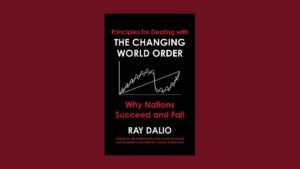Truth can’t be said; What can be said isn’t truth – Lao Tzu
Surprises never cease, madness never ends in this flickering world, more particularly in financial markets. Here, what you see and hear may be a half-truth or a full lie and what might actually be true will come dressed as fake news because saying on television, much better writing, is much easier than actually doing it.
There is virtually no accountability in the financial forecasting area. People who have been wrong about everything for years still draw crowds. They are as good as tarot card readers. But then, who said public speaking skills have anything to do with financial analysis and being able to dish out correct forecasts about stocks and economy in general. Because, people are fascinated by forecasters. They can go to any extent to find a forecaster. A decade ago in 2008, they took Paul-the-Octopus as an oracle to predict outcomes of international World Cup football matches.
Here are some sad and unfortunate truths of investing in stock markets. Those appearing at the top should not be construed any glummer than those at the bottom as all are equally sad and bad for investors’ long term wealth and health. According to some Business Cycle Theories, there will be 7 to 10 recessions over the next 50 years. Be prepared for same. Don’t act surprised when they come. Markets go through at least one big pullback every year, and one massive pullback every decade. Get used to it. It’s just what they do. Frame your investment strategies keeping in mind sudden and large scale downfalls. The phrase “double-dip recession” was mentioned 10.8 million times in 2010 and 2011, according to Google. It never came. There were virtually no mentions of “financial collapse” in 2006 and 2007. It did come.
There are thousands of professional money managers. Statistically, a handful of them have been successful by pure chance. As hitting a century in cricket, successful fund management is more luck than skill. Most investors would be better off if they focused on their own financial management and stopped obsessing themselves about the government, the central bank, and the prime minister for he may have much less influence over the economy, monsoons, inflation and markets than newspapers make people believe. One thing is certain, by the evidence of last one hundred years of data, that the next recession is never going to be like the last one. It could be much bigger, longer and worse. But it’s also a fact that during Recessions, Elections, and Federal Reserve Policy Meetings, people become unshakably certain about things they know nothing about. Thanks to 24×7 blabbering on dozens of business channels. The more someone is on television, the less likely his or her predictions are to come true. (U.C. Berkeley psychologist Phil Tetlock has data on this). Trust them with extreme risk to your portfolio. What markets do day-to-day is overwhelmingly driven by random chance. Ascribing explanations to these short-term moves is like trying to explain lottery numbers or calculating probability of coin-toss.
Chasing stars of the stock market has its own risks as profit gains may be much larger from growing companies outside the index stocks. Some years ago, many now dud stocks like Satyam Computers, Essar Gujarat, Jaiprakash Associates, MTNL, Reliance Communication, and still longer years ago, WIMCO, Scindia Steamship were stars in the benchmark indices and some even used to be traded in kerb dealings after the normal market hours. These are constantly shifted and a similar shift will occur over the next few years.
The more comfortable an investment feels, the more likely it will lead you to slaughter. Comfortable investments are also available to everyone watching television and may not lead you to build a fortune.
Some investors who are called legendary may have achieved best returns when markets were distinctly different and much less competitive. It’s doubtful they themselves or anyone following their sermons will match that record in currently highly evolved markets. However, much money you think you’ll need for retirement, double it. You’ll be closer to reality.
For many, a house is a large liability masquerading as a safe asset. And they feel very happy about it. Real estate prices can reduce or stay flat over a substantially long period because of changes in manufacturing sector jobs and property development rules that have completely evolved over the last two decades.
























